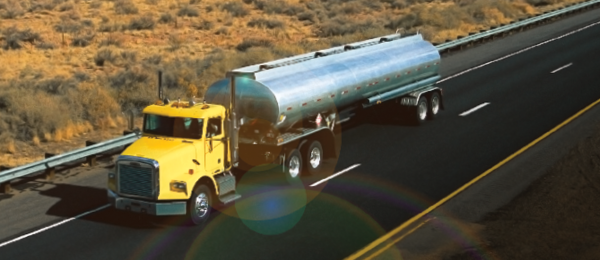Complex Products, Complex Logistics Needs

By their very nature, chemicals make for complicated logistics. Transporting, storing, and distributing flammable, corrosive, highly reactive and carcinogenic materials is not an easy task.
And when things go wrong, it’s not just a late or missing shipment at hand—there are economic, environmental, and emotional consequences. The deadly fertilizer plant explosion that occurred in April 2013 in Texas, for example, highlights the many dangers this industry faces.
As a result, chemical producers—and the third-party logistics partners that serve them—face enormous complexities and challenges in conducting everyday business operations.
While supply chain and logistics management is complex in any industry, those challenges are magnified for chemical manufacturers and distributors. To start, chemical products are more complex and difficult to transport than products in many other industries.
"Consumer packaged goods, for instance, are packaged in square boxes on a pallet, and the pallet can easily be loaded into a trailer," says Mike Challman, vice president, North American operations for ChemLogix, a transportation management and technology provider based in Blue Bell, Pa. "By contrast, chemicals must be shipped in a tank truck, or in an ISO container via intermodal, or as bulk product in a railcar.
"Transporting chemicals requires more safety awareness, and a higher level of experience, preparation, and training on the part of the handlers," he adds. "It is easy for them to hurt themselves, or someone else, if they mishandle the chemicals."
Chemical companies also need to utilize the full gamut of possible transport options to meet their varied and specialized shipping needs.
"Meeting the global transportation needs of the chemical industry means having access to all modes and equipment—rail, tank truck, hopper truck, open market less-than-truckload, van, truckload, flatbed, ocean container, barge, and parcel tanker—in each region of the world," explains Glenn Riggs, senior vice president of North American logistics for Odyssey Logistics & Technology (OL&T) in Danbury, Conn.
In addition, the chemical vertical is quite diverse. Chemical companies are involved in generating a wide span of products, ranging from industrial chemicals to petrochemicals such as oil, natural gas, and shale; herbicides and pesticides; plastic additives; solvents; fragrances and flavors; synthetic dyes and pigments, and many others.
"Servicing the chemical industry requires flexibility and adaptability to be able to meet the needs of the many different customer bases that chemical producers work with," Challman observes.
Safe, Secure Transport
And while other verticals often approach logistics and supply chain operations from a cost perspective first, the focus on safe and secure transportation in the chemicals supply chain takes precedence over all other aspects.
"Everyone wants to control or reduce supply chain costs, but chemical companies have to put that second to safety," Challman explains. "The first thing they look for in a transportation partner is the ability to provide the level of expertise to execute transportation safely and effectively."
"In this industry, you can never compromise safety—it is not an option," adds Earnie Seibert, vice president of sales and marketing for Dupré Logistics in Lafayette, La. "The stakes are higher for chemical shippers because of the hazardous materials they transport, and we do everything we can to protect our drivers and all others on the road."
Because of the key importance of safety and the specialized nature of their products, chemical producers need to be much more stringent than shippers in other verticals when selecting transportation partners. Indeed, screening potential carrier partners is a more rigorous process for chemical shippers and/or the logistics providers servicing them.
"When we partner with transportation providers, we consider how often carriers have maintenance defects and accidents on the road, and their drivers’ log errors," Riggs says. "You have to probe into these sub-categories for chemicals—it is quite different from packaged goods, for example, where you just need to ensure the carriers carry enough insurance and are in good standing with the Federal Motor Carrier Safety Administration."
Chemical shippers must also look closely at carriers’ operations and safety procedures out on the roads.
"Because chemical loads pose safety and security risks, drivers must ensure a truck loaded with drums, or a tank truck full of bulk liquids, is always parked in a lighted, secure area, and attended to at all times," Riggs notes. "Many protocols must be watched and enforced to ensure the shipments are safe all the way to the final delivery point."
And the complexity of the chemical supply chain doesn’t rest only with transportation—warehousing and storing chemicals is quite intricate, too. Chemical storage facilities must be outfitted with a wide variety of safety specifics such as hazard equipment, retention areas, and temperature-controlled zones, explains Jim Emmerling, vice president of operations for Weber Logistics, a West Coast-based provider of warehousing, freight, and logistics services.
CFATS Compliance
Some chemical facilities, such as Weber’s DC in Santa Fe Springs, Calif.—which specializes in handling, storing, and distributing flammable liquids, corrosives, oxidizers, and poisons—take the added step of complying with the U.S. Department of Homeland Security’s Chemical Facility Anti-Terrorism Standards (CFATS).
The rule, which establishes risk-based performance standards for the security of chemical facilities, requires facilities to assess their security vulnerabilities, and to develop and implement Site Security Plans, which include measures that satisfy the identified risk-based performance standards.
"In order to meet our own safety standards, and to stay compliant with CFATS, we implemented stringent and thorough internal auditing processes," says Jim Rogers, distribution center manager for Weber’s Santa Fe Springs facility.
The materials handling equipment used in the Santa Fe Springs facility is also specific to chemical storage. "We use explosion-proof forklifts," Rogers says. "All the electronics and the electrical wiring within the forklift are guarded and protected more than in a normal forklift."
Weber works with local fire departments and first responders to ensure they are familiar with the facility in case of a safety or security breach. Knowing the facility’s footprint, and where corrosive and flammable substances are stored, helps responders do their jobs more effectively should an accident occur.
